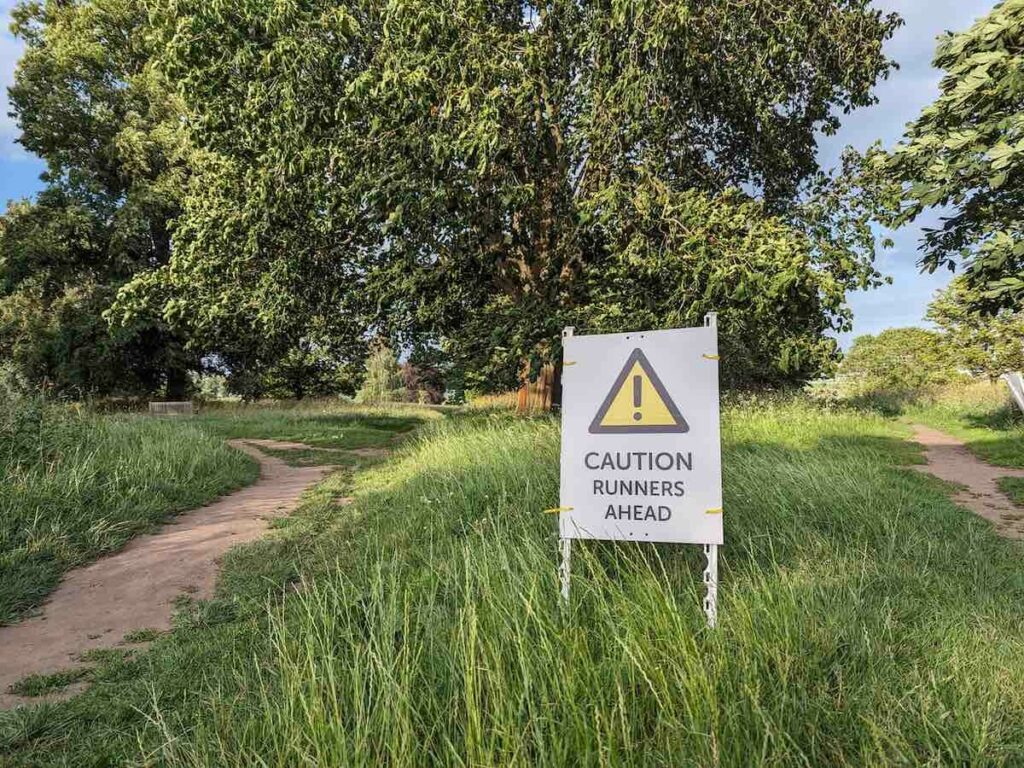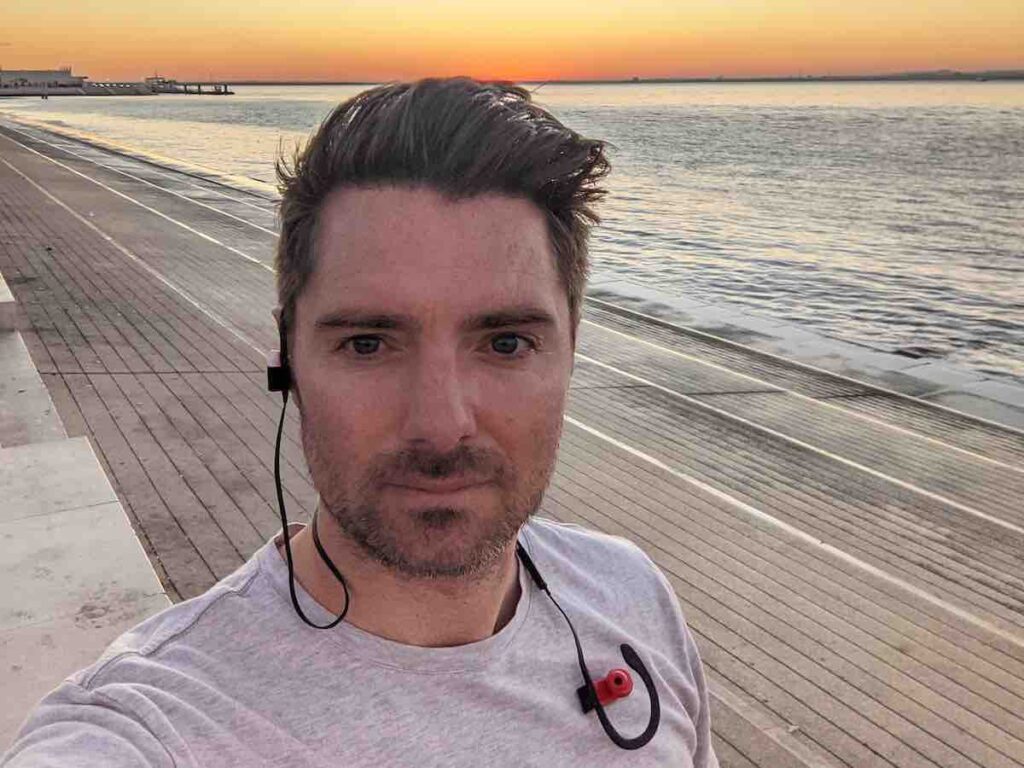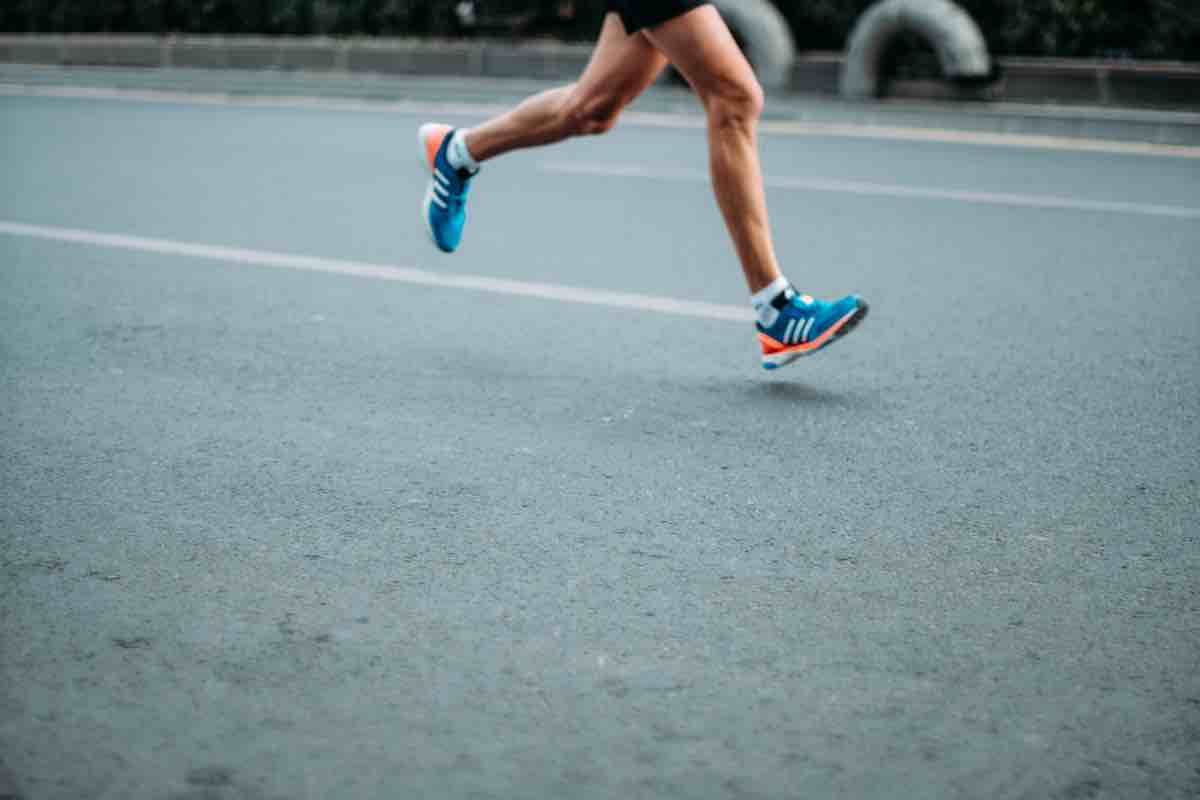Beer gardens. Summer holidays. Family get-togethers. This is the season for overindulgence.
Running hungover the next day may seem unorthodox, but there’s a surprising number of people who turn to exercise to deal with the aftereffects of a night out. Alternatively, it might be they have a strict running training plan to stick to.
For others, the prospect of physical exercise is unfathomable. Uncertain if it’ll backfire and make the hangover even worse.
In this article, we’ll tackle the science, myths and practical tips for running on a hangover. We’ll cover:
- Pros and cons of exercise with a hangover
- The impact of alcohol on the body
- Practical tips for running hungover
- Overcoming the mental struggle
- How to properly rest and recover
Does running help a hangover?

Assuming you’ve left sufficient time after drinking before exercise, fresh air and physical activity are well known to speed up the process of recovering from alcohol’s negative effects.
Hungover miles work by getting blood circulating, which in turn flushes out toxins from your system. However, it’s important to be aware of your body’s limits and potential risks associated with running with a hangover.
Even on a mild hangover, cardio can be a tough ask. Brutal, but fulfilling.
Some people even swear by it as the ultimate hangover cure.
It can also double-up as great mental training for a marathon – how to get on top of dehydration, fatigue, the mental struggle.
Is running with a hangover harmful?
Ok, know it is a gamble of sorts. Not least for your hangover.
Running hungover might exacerbate your headache. The number one rule against this is to stay hydrated and to replenish electrolytes. Before, during, and after your run.
Running with a hangover can increase your likelihood of developing muscle pulls and cramps, as your body struggles to overcome the effects of dehydration and toxin buildup. For example, when your body is low on fluids, lactate tends to accumulate, which can lead to muscle fatigue and pain.
It is best to start with a light jog or walk and respect your reduced capacity and stop if you feel dizzy or unwell.
It’s also wise not to make a habit out of running after a night on the town. Consistently pushing yourself in such a state could lead to:
- Decreased performance: Your stamina and overall performance levels may decline due to the physical toll of running while hungover.
- Increased injury risk: Dehydration and compromised muscle function might contribute to an elevated risk of injuries, such as sprains and strains.
- Impaired recovery: The recovery process could be hindered, as your body is simultaneously trying to manage both exercise-related concerns and the aftereffects of alcohol consumption.
Like most things in life, strenuous exercise with a hangover is only advisable in moderation.
The Impact of Running Hungover – Good or Bad
Effects of Alcohol on the Body
When you drink alcohol, it affects your body in various ways. Let’s start with dehydration. Alcohol acts as a diuretic, causing your body to eliminate more fluids than usual. This can lead to reduced blood volume, which in turn affects your heart and muscles while running.
Alcohol consumption also takes its toll on the brain’s neurotransmitters, which are responsible for maintaining muscle coordination and balance. This can compromise your running performance and increase the risk of injuries. Furthermore, alcohol interferes with the body’s energy production by limiting the release of glucose from the liver, leading to fatigue during a run.
The Science Behind Hangovers
Hangovers are a collection of symptoms caused by the body’s reaction to the toxins found in alcohol. Some common hangover symptoms are headache, dizziness, fatigue, and nausea. These symptoms occur as a result of dehydration, electrolyte imbalances, and alcohol’s toxic metabolites, like acetaldehyde.
When you have a hangover and try to run, your body is already dealing with the effects of alcohol consumption, making it difficult to perform at your best. Your brain and muscles struggle from the lack of hydration, while your liver works overtime to eliminate toxins. Additionally, hangover symptoms may cause discomfort that hinders your running experience.
With this in mind, it’s important to adjust your expectations for performance. Stay properly hydrated, listen to your body, and take care of yourself.
7 Tips for Running With a Hangover
#1: Assess Just How Bad the Hangover Is

No two hangovers are the same.
After too much alcohol, it’s essential to evaluate your physical condition when deciding to run.
Pay attention to the following symptoms:
- Headache: A hangover headache can be a strong indicator of dehydration. Assess the severity of your headache; if it is mild, running might alleviate it, but if it’s severe, consider resting and hydrating instead.
- Nausea: Running hungover can worsen things and lead to vomiting. Determine whether your nausea is manageable or too intense for physical activity. If you feel too sick, it’s best to avoid running.
- Balance and motor skills: In the aftermath of a hangover, your balance may be off, and your motor skills might be impaired. Check your ability to walk and perform simple motions, and only proceed if you feel stable and coordinated.
- Reaction time: Slow reaction time after a night of heavy drinking can pose risks, especially when running in areas with traffic or obstacles. When assessing your reaction time, consider your safety and don’t run if you feel sluggish or unresponsive.
Remember, it’s crucial to listen to your body when contemplating running with a hangover. If any of the above symptoms are extreme or significantly impact your ability to safely push your body, consider taking a rest day or engaging in lighter activities.
#2: Alter Your Running Strategy
Speed isn’t everything. Just getting out is a triumph.
Much like running in the snow or wet weather, you can’t force your usual pace or distances when running on a hangover.
Gentle exercise ensures more realistic performance and recovery goals. It also gives your brain more time to process your surroundings, such as other pedestrians or obstacles on a trail run.
Slowing down and being present when running helps to release endorphins. The brain’s feel-good neurotransmitters that feed the ‘runner’s high’ sensation.
Remember to listen to your body and rest if your hangover takes a turn for the worse.
#3: Re-hydrate Before, During & After Your Run

Hydration plays a crucial role in your hangover recovery. Since you lose significant amounts of water and electrolytes while drinking and sweating, it’s vital to rehydrate before, during and after your run.
Dehydration can increase the risk of many health issues, including bone fractures, heart attack, and stroke. To ensure I remained well-hydrated, I carried a water bottle and consumed electrolyte-rich drinks.
Here are some hydration strategies I swear by:
- Before a run: Drinking 500ml of water 2 hours prior
- During a run: Consuming 200ml of water every 20 minutes
- After a run: Drinking enough water to compensate for fluid loss
- Drinking water even if you’re not feeling thirsty
- Consuming electrolyte-containing sports drinks
Related Reading: How to Run in the Sun
#4: Incorporate Good Pit Stops 🍦
Decent carrots at the end of the stick really break up a hungover run!
You can’t beat an iced latte, cold beer or ice cream to keep motivation levels high.
These snacks also have a unique ability to resuscitate the childlike wonder in us.
#5: Change Your Schedule – Run at Night
Running at night gifts you extra recovery time. A godsend after a heavy night.
Running on a hangover is hard enough without the discomfort and risk of heat exhaustion and worsening dehydration from running in the sun.
Running at night also means there’s far fewer hazards to contend with. No need to zigzag through oncoming pedestrians and there’s usually fewer cars on the road.
#6: Cut Out All Other Noise – Run Without Music

I find solo runs a great opportunity to play my favorite Spotify playlists or catch up on the latest podcast episode. Music also keeps me entertained and motivated, and I enjoy the company on longer distance runs.
But there’s also times when I need to run without music. In total silence.
A hangover is definitely one of them!
I sometimes suffer from sensory overload when hungover, so the silence definitely helps.
Running without music also allows me to be more present and find my flow state. Every mile is rich in minor thrills waiting to be discovered – be they in nature, architecture, wildlife, or a beautiful vista. Switching off my music helps me to shift my attention outward instead of inward, which is particularly helpful when you’re feeling less than your best.
#7: Prevention Is Better Than Cure – Commit to a Training Program

For many people, hiring a running coach might seem out of reach. An expensive luxury for something that’s as simple as putting one foot in front of the other. Thanks to online running coaching apps expert advice has never been more accessible and affordable.
Hiring a good running coach will also do more than improve your running. It’ll also encourage you to build better habits, including lowering your alcohol intake. Your tailored training schedule will come with guidance and coaching on how to eat healthier, recover faster, prepare for race day, achieve personal records, and improve your overall conditioning.
Sometimes all your need is a little guidance and accountability.
Read on: How Much is a Running Coach?
So, Will It Be Running Hungover or Sleep?
The best remedy for a hangover will depend on how you feel and the severity of your symptoms. If you feel well enough and have hydrated, exercise such as walking, running, or cold water swimming can be beneficial. However, if you’re experiencing severe fatigue, nausea, or other hangover symptoms, rest is crucial for recovery. Listen to your body, and give yourself the necessary time to recuperate.

